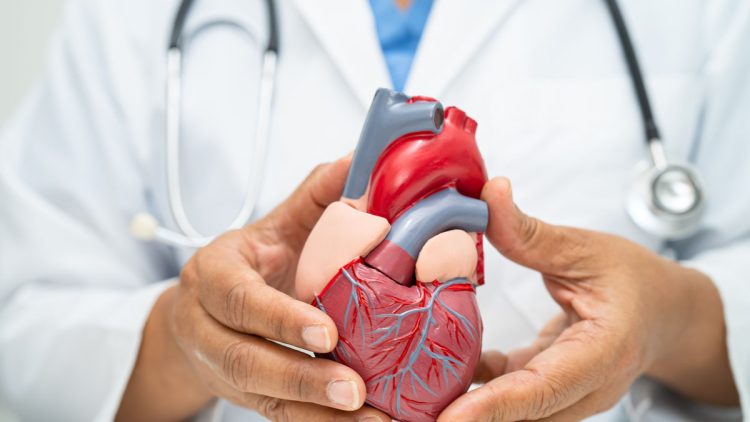Cardiovascular Disease
Cardiovascular diseases (CVDs) impact your blood vessels and heart. Nearly half of all adults in the US have no less than one type of heart disease. You can make lifestyle changes to control cardiovascular disease, or your physician might prescribe medications. The earlier you detect this disease, the easier it is to treat.
What is cardiovascular disease?
Cardiovascular disease is a grouping of diseases impacting your blood vessels and heart. These diseases can impact one or many areas of your blood vessels and/or heart. An individual could be symptomatic (physically enduring the disease) or asymptomatic (not feeling a thing).
Cardiovascular disease comprises of heart or blood vessel problems, such as:
- Contraction of the blood vessels in your heart, other organs or across your body.
- Blood vessels and heart issues present at birth.
- Heart valves that are not working correctly.
- inconsistent heart rhythms.
How average is cardiovascular disease?
This disease is the primary cause of death across the world and in the US.
Nearly half of adults in the US have some type of CVD. It impacts individuals of all ages, races, sexes, and socio-economic levels. 1 in 3 women and those assigned female at birth passes away from CVD.
Symptoms and Causes of CVD
What is the cause of cardiovascular disease?
The causes of CVD can differ depending on the specific kind. For instance, atherosclerosis (artery plaque buildup) is the cause of peripheral artery disease and coronary artery disease. Coronary artery disease, the scarring of your heart muscle, genetic issues or medications can be the cause arrhythmias. Getting older, infections and rheumatic disease can be the cause of valve diseases.
What are the risk factors of cardiovascular disease?
You might be more likely for developing cardiovascular disease should you have risk factors like:
- High blood pressure (hypertension).
- High cholesterol (hyperlipidemia).
- Use of tobacco (also vaping).
- Type 2 diabetes.
- Family history of heart disease.
- No physical activity.
- Being overweight or obese.
- Diet high in sugar, sodium and fat.
- Misuse of alcohol.
- Misuse of prescription or recreational drugs.
- Pre-eclampsia or toxemia.
- Gestational diabetes.
- Chronic inflammatory or autoimmune conditions.
- Chronic kidney disease.
What are the symptoms of CVD?
Cardiovascular disease symptoms can differ subject to the cause. Older adults and those assigned female at birth might have more minute symptoms. Nevertheless, they can still have severe cardiovascular disease.
Symptoms of heart concerns
- Chest pains (angina).
- Chest pressure, heaviness, sometimes claimed to be a “weight on the chest” or a “strap around the chest”.
- Breathing difficulty (dyspnea).
- Dizziness or faintness.
- Fatigue or tiredness.
Vista Winds Is An Upscale Retirement Community Located In Peoria, Arizona
If you are doing research about retirement communities in Peoria, Arizona, Vista Winds Retirement Home should definitely be on your list. Vista Winds offers retirement living at its finest. We have a rich calendar of activities, meals prepared by a Chef and caregivers on staff 24 hours a day for your health and safety. We offer award winning independent living, assisted living and memory care services. Come tour our community to see how we are a step above the rest and how easy it is to Make Yourself at Home! Vista Winds is surrounded by amazing views and our resort style property will be sure to impress!

